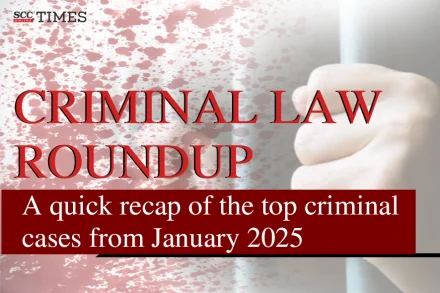
CRIMINAL LAW ROUNDUP: A quick recap of the top criminal cases from January 2025
Top criminal cases on quashing of proceedings, arrest, bail, acquittal, and more.

Top criminal cases on quashing of proceedings, arrest, bail, acquittal, and more.
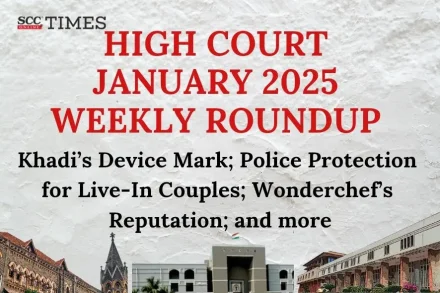
A quick legal roundup to cover important stories from all High Courts this week.
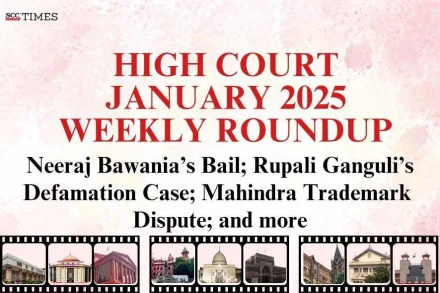
A quick legal roundup to cover important stories from all High Courts this week.
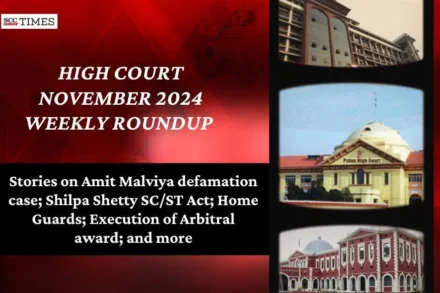
A quick legal roundup to cover important stories from all High Courts this week.

The appellants are technologically savvy persons who have made use of their educational qualifications to promote terrorism and incite offensive activities against the country. Such cases would have to be dealt with differently than cases involving innocent persons, who may have been pulled into crime without their knowledge.
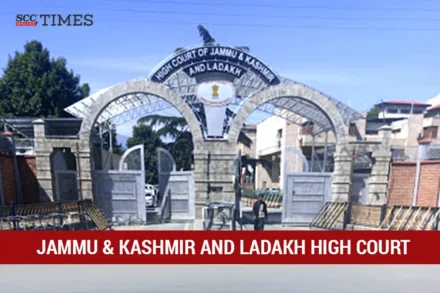
“The conditions in the Union Territory of J&K are entirely different … this part of the Country has been reeling under militancy for the last more than three decades, as such, the State is justified in dealing with the crimes relating to terrorism in a manner that is different from dealing with similar crimes in Delhi.”
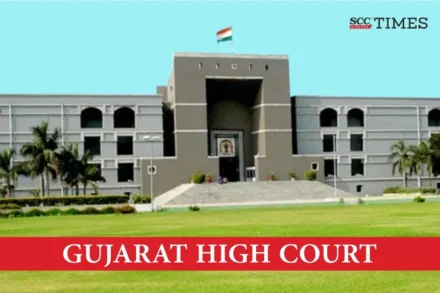
“Files / images which were forwarded by the applicant to a lady, who was stationed in Pakistan, were related to the Space Applications Centre, ISRO, Ahmedabad and these images were taken by the applicant without any authorization.”
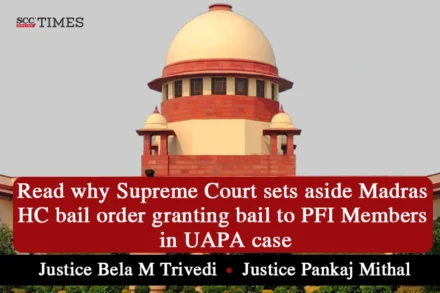
“We are conscious of the legal position that we should be we are slow in interfering with the order when the bail has been granted by the High Court, however it is equally well settled that if such order of granting bail is found to be illegal and perverse, it must be set aside.”

The Court pointed out that to be influenced by the forceful submission of internal security of the State, and to reject a bail application where the State has utterly failed to disclose any material against the accused, is a sure shot recipe for miscarriage of justice.

The Court noted that petitioner had been made to suffer loss of his liberty for a cumulative period of more than 1080 days of preventive custody covered under the span of four detention orders in row from 2019 to March 2024.
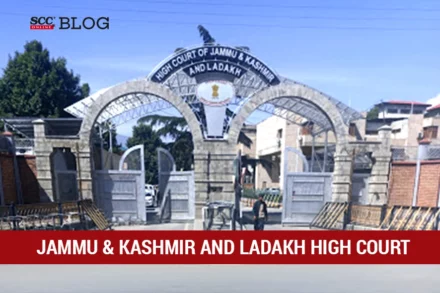
The High Court meaningfully stated the existence of prima facie evidence against the accused is to no avail if there is no justification for the arrest based on the doctrine of clear and present danger to the society.
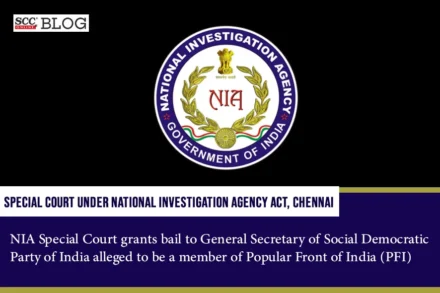
The Court stated that the objections raised by respondent that if petitioner was released on bail then he may abscond to evade criminal justice, are untenable because the petitioner is a Secretary for SDPI political party.

The Court also observed that fundamentalism pertaining to a Muslim is merely someone who believes in the fundamentals of Islam and the same cannot have a negative bearing.
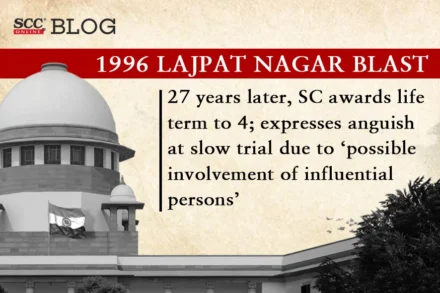
“A prominent market in the heart of the capital city is attacked and we may point out that it has not been dealt with the required degree of promptitude and attention. To our great dismay, we are forced to observe that this may be due to the involvement of influential persons.”
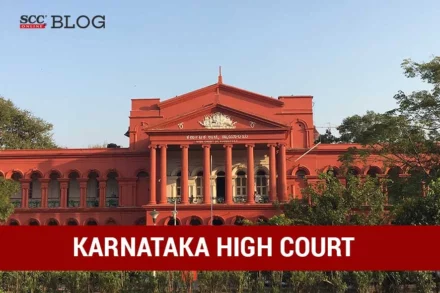
The Court was deliberating over an appeal challenging the rejection of bail to the accused charged under IPC and UAPA for being actively involved with the ‘KG Halli Riots’ in Bengaluru.
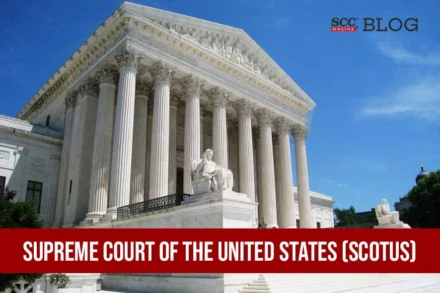
SCOTUS unanimously held that the plaintiffs failed to allege that the social media sites had intentionally provided any substantial aid or systemically assisted ISIS, which directly led to the Reina Nightclub terror attack.
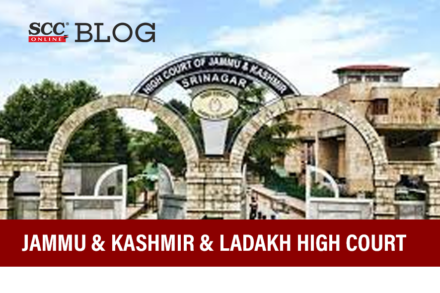
Village Defence Guard Scheme- 2022 insofar as it denudes the petitioners of their status as SPOs and consequently reduces their remuneration/honorarium is an arbitrary and colourable exercise of power.
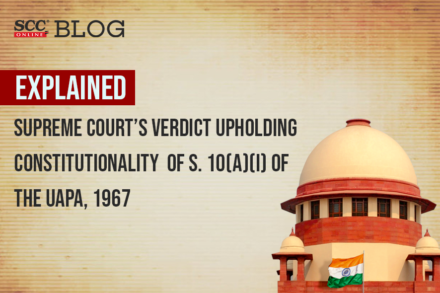
Supreme Court said that the object and purpose of the enactment of UAPA is to provide for more effective prevention of certain unlawful activities. To punish such a person who is continued as a member of such unlawful association which is declared unlawful due to unlawful activities can be said to be in furtherance of providing for effective prevention of the unlawful activities.
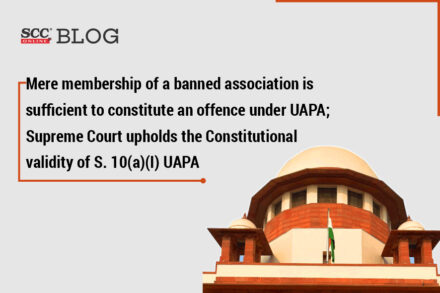
Supreme Court’s full bench declared the judgments in Arup Bhuyan, Indra Das and Raneef to be bad in law. Also, the High Courts Judgments which followed these precedents were overruled
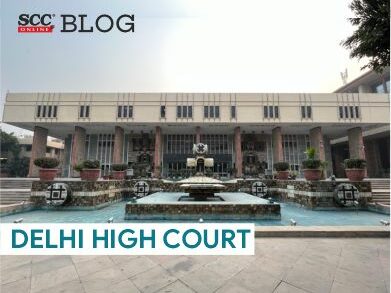
The Mumbai blasts which are the subject matter of the reports, were one of the worst terror attacks on India, leading to hundreds of deaths and hundreds of injured persons. Thus, reports/dossiers on such investigations can have a major bearing on India’s security, sovereignty and integrity.